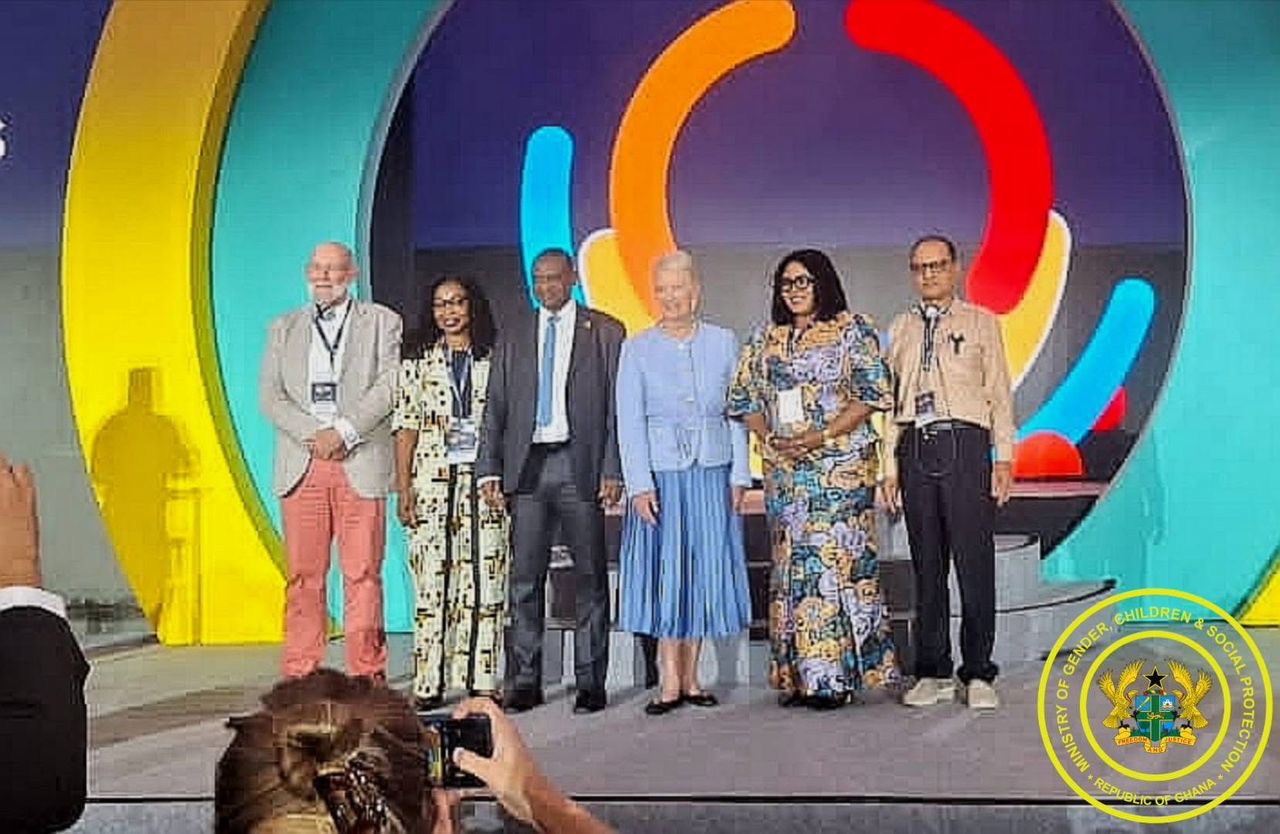The Minister for Gender, Children and Social Protection, Hon. Dr Agnes Naa Momo Lartey, has led Ghana’s delegation to the 2nd Global Summit on the School Meals Coalition in Brazil, where she showcased Ghana’s achievements in providing hot and nutritious meals to schoolchildren.
Speaking at the summit, Dr Lartey emphasised that the Ghana School Feeding Programme (GSFP) is not only about feeding children but also about transforming lives and strengthening communities. She outlined four core objectives of the programme:
Tackling malnutrition and boosting the immunity and well-being of children to reduce diseases and support healthy growth.
Improving school enrolment, attendance, and retention, particularly in public basic schools.
Promoting local agriculture by sourcing food from Ghanaian farmers to create a sustainable market for local produce.
Creating jobs for caterers and cooks, especially women, thereby empowering households and communities.
The Minister revealed that the GSFP currently provides meals to more than 4.2 million children in over 12,000 basic schools nationwide, a milestone that reflects Ghana’s commitment to child welfare and education.
Dr Lartey also participated as a panellist, where she shared how research has directly influenced the establishment and evolution of the programme. She commended Prof. Donald Bundy for his role in the initial research that informed Ghana’s policy decisions, resulting in significant investments in school feeding and other social interventions.
Looking ahead, she outlined the government’s plans to strengthen further the programme through enhanced nutritional standards, closer monitoring of food quality, and expanded partnerships with local producers.
On the sidelines of the summit, Dr Lartey and her delegation also held bilateral meetings with counterparts from Finland and Ethiopia, exploring opportunities for collaboration in strengthening school meal initiatives and advancing shared goals in social protection.
The Global Summit on the School Meals Coalition brought together policymakers, researchers, and stakeholders from across the world to explore strategies that leverage school meals as a tool for improving education, health, and economic development.





